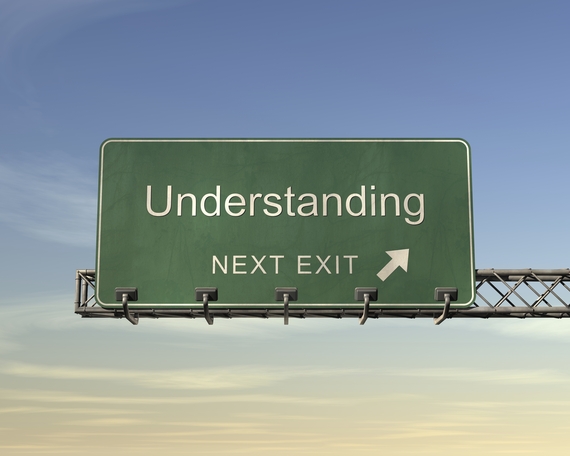Nine people were killed in an act of racial terrorism. As our country and the world continues to discuss what brings so much pain, terror, and violence into our lives, one of the common reactions after a tragedy is for people to ask, "Why?"
As they ask, "Why", next they seem to point at "Who" they feel is to blame.
Whether it is sexual violence, racism, terrorism, mental health, or other important issues facing our country and the world at large, within days of a horrible tragedy people begin pointing.
What if we started by looking inward versus pointing outward?
When I speak on sexual assault around the world, sometimes I will have an attendee who will ask me (in front of the entire room), "We are not rapists and so why not just tell us what we need to do to stop others?" After a mass murder, you've probably heard a similar discussion in the media of "How do we stop the killers?"
What about our individual roles? Is it possible we contribute to a culture of racism, violence, sexism, and terrorism?
How? Let's look at sexual assault. When a group of friends are hanging out and one person sexually degrades a woman for the exact same behaviors a man is often praised for (being sexually active, choice of clothing, drinking alcohol, etc...), do most people in the group point out the hypocrisy of sexually degrading the woman and then ask the person to stop the degradation? Not typically. Sexual degradation of one gender results in an imbalance of societal power based purely on gender. How does this relate to sexual assault? Sexual assault is a crime of power!
Yet the same people making degrading comments and the people not standing up to such comments will often say, "I'm not a rapist and so sexual assault is not my problem." They fail to see their own role in creating a culture that leads to the crime.
Likewise with the tragedy in Charleston this past week, white people may be quickly trying to distance themselves with statements such as, "Dylann Roof was mentally unstable. That is not me. Thus, this is not my problem." We fail to see our own role as part of today's culture.
This transfer of responsibility is what we see our society do time and time again, especially after tragedies. When we get uncomfortable, we look for someone else to put our agitation, confusion, and hurt onto.
What if we asked, "What is my role in this culture that has led to people acting this way? How do I and/or how have I contributed to what is occurring?"
Self-awareness. What personal behaviors could I transform about myself to help address what is happening? What thoughts do I sometimes have and/or actions do I sometimes take (or fail to take) that could add to this problem? What changes can I make to have a more positive impact?
Judgement. We live in a world where we are constantly hearing people be judged. The impact of such an environment is we are likely to have thoughts that are not always positive toward one's self and others - sometimes including towards groups of people.
The key is recognizing when we are falling into the trap of judging others without first asking "Is it possible I have contributed to this problem? If so, how can I be more compassionate and loving going forward?"
In that moment, consider asking "How may my realities be very different than the realities of others?" Take me as an example: as a white cisgender married male with a college education, raised in an upper-middle class Christian family, who runs his own organization, is it possible my perception of certain issues is greatly influenced by the world I SEE compared to the world OTHERS SEE? Logic would say, "Duh. Of course."
None of us can fully comprehend the complexities of another person's life. And to act like we can is arrogant. I've made that mistake. When I was younger, I would think, "I know what you are going through." No, I didn't and still don't.
What I know is that it is my responsibility as a citizen of this world to reach out and LISTEN. To LEARN from those individuals whose realities I have never experienced and to ask, "What can I do today about my own behaviors to make both of our worlds better places for all people to exist?"
The "Why?" begins with me. How about you?
